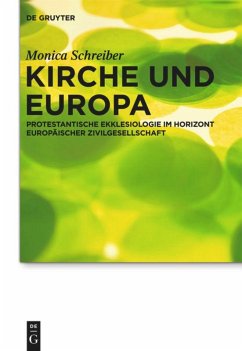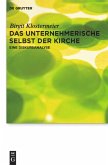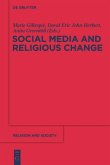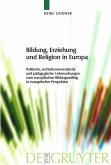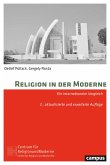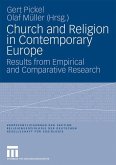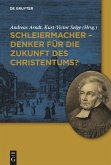The process of European integration is presenting the churches of Europe with new challenges. Applying a combination of social-scientific, historical and theological methods, the author investigates the self-understanding and the Europe concept of Christian and Islamic organizations within European civil society. The study points towards an ecclesiastical concept that enables a combination of fundamental Protestant concerns and societal conditions in Europe.
The study received the award Wissenschaftspreis of Hanns-Lilje-Stiftung 2013 ( Link ).
Der Prozess der europäischen Integration stellt die Kirchen Europas vor neuartige Herausforderungen. Durch wirtschaftliche, gesellschaftliche und rechtliche Regelungen werden Standards geschaffen, die eine neue Umwelt für die Kirchen als religiöse Organisationen bilden. Dabei stehen die Kirchen nicht nur vor der dem Problem unterschiedlicher Strukturen und theologischer Differenzen, sondern auch vor der Aufgabe sich zu den anderen Religionen und zur Europäischen Union als Staatsgebilde verhalten zu müssen. Die Autorin nimmt sich dieser Problemstellung mithilfe von empirisch-sozialwissenschaftlichen, historischen und theologischen Verfahrensweisen an. Die Eröffnungsfrage nach der Identität Europas wird im Diskurs zwischen Selbstverständnissen, institutionell-ideologischen Strukturen und historischen Konzepten erörtert. Darauf folgt die Einordnung der Kirchen und weltanschaulichen Gemeinschaften in den Kontext europäischer Zivilgesellschaft. Die Erörterung der Europakonzepte des Islams, der russischen Orthodoxie, des römischen Katholizismus und der evangelischen Kirchen bildet den Hintergrund für die Konzeption einer kulturprotestantisch orientierten protestantischen Ekklesiologie im europäischen Horizont.
Die Arbeit wurde mit dem Wissenschaftspreis der Hanns-Lilje-Stiftung 2013 ausgezeichnet (Link).
The study received the award Wissenschaftspreis of Hanns-Lilje-Stiftung 2013 ( Link ).
Der Prozess der europäischen Integration stellt die Kirchen Europas vor neuartige Herausforderungen. Durch wirtschaftliche, gesellschaftliche und rechtliche Regelungen werden Standards geschaffen, die eine neue Umwelt für die Kirchen als religiöse Organisationen bilden. Dabei stehen die Kirchen nicht nur vor der dem Problem unterschiedlicher Strukturen und theologischer Differenzen, sondern auch vor der Aufgabe sich zu den anderen Religionen und zur Europäischen Union als Staatsgebilde verhalten zu müssen. Die Autorin nimmt sich dieser Problemstellung mithilfe von empirisch-sozialwissenschaftlichen, historischen und theologischen Verfahrensweisen an. Die Eröffnungsfrage nach der Identität Europas wird im Diskurs zwischen Selbstverständnissen, institutionell-ideologischen Strukturen und historischen Konzepten erörtert. Darauf folgt die Einordnung der Kirchen und weltanschaulichen Gemeinschaften in den Kontext europäischer Zivilgesellschaft. Die Erörterung der Europakonzepte des Islams, der russischen Orthodoxie, des römischen Katholizismus und der evangelischen Kirchen bildet den Hintergrund für die Konzeption einer kulturprotestantisch orientierten protestantischen Ekklesiologie im europäischen Horizont.
Die Arbeit wurde mit dem Wissenschaftspreis der Hanns-Lilje-Stiftung 2013 ausgezeichnet (Link).

